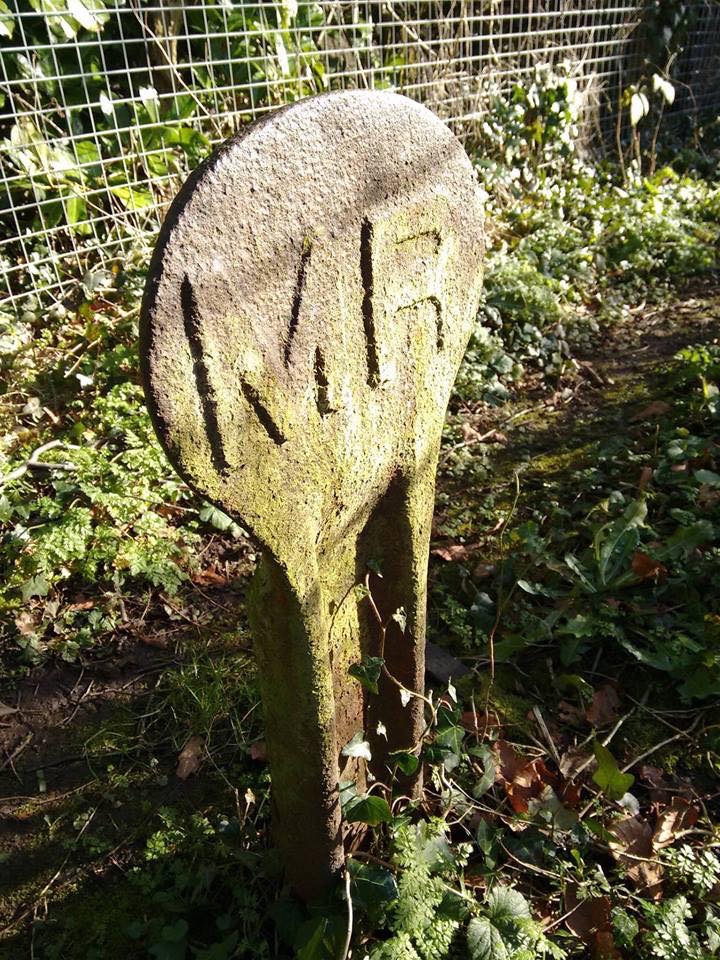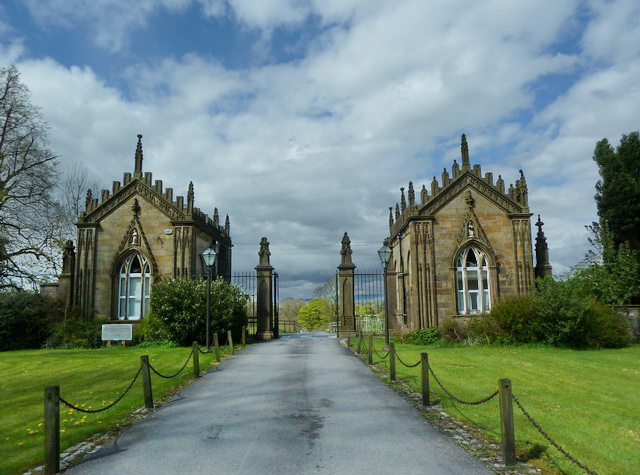|
Barnoldswick Railway
The Barnoldswick Railway was an English railway company, that constructed a short branch line to BarnoldswickAt that time Barnoldswick was in the West Riding of Yorkshire, but since the local government reorganisation of 1974 it has been in Lancashire. from a junction on the Midland Railway line from Skipton to Colne. It was opened in 1871, and was worked from the outset by the Midland Railway. It was moderately successful in financial terms, and the company was acquired by the Midland Railway in 1899. Declining usage led to the line being closed to passengers in 1965 and to goods in 1966. Construction and opening Barnoldswick was a small cotton weaving community. Local industry was hampered by poor transport links, although this was mitigated by the opening of a local part of the Leeds and Liverpool Canal in the last decade of the eighteenth century. The Midland Railway line from Skipton to Colne opened in 1848, by-passing Barnoldswick, and this emphasised the disadvantage, giv ... [...More Info...] [...Related Items...] OR: [Wikipedia] [Google] [Baidu] |
Barnoldswick
Barnoldswick (pronounced ) is a market town and civil parish in the Borough of Pendle, Lancashire, England. It is within the boundaries of the historic West Riding of Yorkshire, Barnoldswick and the surrounding areas of West Craven have been administered since 1974 as part of Lancashire. This was when West Riding County Council and Barnoldswick Urban District Council were abolished and the town was transferred to the Borough of Pendle. It lies near the Yorkshire Dales National Park and the Forest of Bowland Area of Outstanding Natural Beauty. Stock Beck, a tributary of the River Ribble, runs through the town, which has a population of 10,752. On the lower slopes of Weets Hill in the Pennines, astride the natural watershed between the Ribble and Aire valleys, Barnoldswick is the highest town on the Leeds and Liverpool Canal, lying on the summit level of the canal between Barrowford Locks to the south west and Greenberfield Locks just north east of the town, from Le ... [...More Info...] [...Related Items...] OR: [Wikipedia] [Google] [Baidu] |
Barnoldswick Railway Station
Barnoldswick was the only railway station on the Midland Railway's long Barnoldswick Branch in the West Riding of Yorkshire in England (now in the Pendle District of Lancashire); it served the market town of Barnoldswick. The line left the Leeds and Bradford Extension Railway at Barnoldswick Junction from . The line through the junction was on a radius after which it converged to a single track and ran in a straight but undulating line to Barnoldswick. The passenger train that ran back and forth between Barnoldswick and Earby was known locally as the ''Barlick Spud'' or ''Spudroaster''. The real reason for the name is lost in time, but the two versions that were commonly recited are that the original branch locomotive was so small it looked like a portable potato roaster used by a local vendor or that the journey time was the same as that taken to roast a potato in the locomotive's firebox. Opening The line was built by the Barnoldswick Railway and worked by the Midland Ra ... [...More Info...] [...Related Items...] OR: [Wikipedia] [Google] [Baidu] |
1899 Disestablishments In England
Events January 1899 * January 1 ** Spanish rule ends in Cuba, concluding 400 years of the Spanish Empire in the Americas. ** Queens and Staten Island become administratively part of New York City. * January 2 – **Bolivia sets up a customs office in Puerto Alonso, leading to the Brazilian settlers there to declare the Republic of Acre in a revolt against Bolivian authorities. **The first part of the Jakarta Kota–Anyer Kidul railway on the island of Java is opened between Batavia Zuid ( Jakarta Kota) and Tangerang. * January 3 – Hungarian Prime Minister Dezső Bánffy fights an inconclusive duel with his bitter enemy in parliament, Horánszky Nándor. * January 4 – **U.S. President William McKinley's declaration of December 21, 1898, proclaiming a policy of benevolent assimilation of the Philippines as a United States territory, is announced in Manila by the U.S. commander, General Elwell Otis, and angers independence activists who had fought against ... [...More Info...] [...Related Items...] OR: [Wikipedia] [Google] [Baidu] |
1862 Establishments In England
Year 186 ( CLXXXVI) was a common year starting on Saturday (link will display the full calendar) of the Julian calendar. At the time, it was known as the Year of the Consulship of Aurelius and Glabrio (or, less frequently, year 939 ''Ab urbe condita''). The denomination 186 for this year has been used since the early medieval period, when the Anno Domini calendar era became the prevalent method in Europe for naming years. Events By place Roman Empire * Peasants in Gaul stage an anti-tax uprising under Maternus. * Roman governor Pertinax escapes an assassination attempt, by British usurpers. New Zealand * The Hatepe volcanic eruption extends Lake Taupō and makes skies red across the world. However, recent radiocarbon dating by R. Sparks has put the date at 233 AD ± 13 (95% confidence). Births * Ma Liang, Chinese official of the Shu Han state (d. 222) Deaths * April 21 – Apollonius the Apologist, Christian martyr * Bian Zhang, Chinese official and gener ... [...More Info...] [...Related Items...] OR: [Wikipedia] [Google] [Baidu] |
Railway Companies Disestablished In 1899
Rail transport (also known as train transport) is a means of transport that transfers passengers and goods on wheeled vehicles running on rails, which are incorporated in tracks. In contrast to road transport, where the vehicles run on a prepared flat surface, rail vehicles (rolling stock) are directionally guided by the tracks on which they run. Tracks usually consist of steel rails, installed on sleepers (ties) set in ballast, on which the rolling stock, usually fitted with metal wheels, moves. Other variations are also possible, such as "slab track", in which the rails are fastened to a concrete foundation resting on a prepared subsurface. Rolling stock in a rail transport system generally encounters lower frictional resistance than rubber-tyred road vehicles, so passenger and freight cars (carriages and wagons) can be coupled into longer trains. The operation is carried out by a railway company, providing transport between train stations or freight customer facili ... [...More Info...] [...Related Items...] OR: [Wikipedia] [Google] [Baidu] |
Transport In The Borough Of Pendle
Transport (in British English), or transportation (in American English), is the intentional movement of humans, animals, and goods from one location to another. Modes of transport include air, land (rail and road), water, cable, pipeline, and space. The field can be divided into infrastructure, vehicles, and operations. Transport enables human trade, which is essential for the development of civilizations. Transport infrastructure consists of both fixed installations, including roads, railways, airways, waterways, canals, and pipelines, and terminals such as airports, railway stations, bus stations, warehouses, trucking terminals, refueling depots (including fueling docks and fuel stations), and seaports. Terminals may be used both for interchange of passengers and cargo and for maintenance. Means of transport are any of the different kinds of transport facilities used to carry people or cargo. They may include vehicles, riding animals, and pack animals. Vehicles may inclu ... [...More Info...] [...Related Items...] OR: [Wikipedia] [Google] [Baidu] |
Earby Railway Station
Earby railway station was a junction station that served the town of Earby, which was in the West Riding of Yorkshire, England, at the time but now is in Lancashire. It was built by the Midland Railway, on the former Leeds and Bradford Extension Railway between Skipton and Colne and opened in 1848. The main line continued towards to the north. South of Earby, in the direction of , there was a junction with a short branch towards . The latter route succumbed to the Beeching Axe The Beeching cuts (also Beeching Axe) was a plan to increase the efficiency of the nationalised railway system in Great Britain. The plan was outlined in two reports: ''The Reshaping of British Railways'' (1963) and ''The Development of the ... in September 1965, but the station remained open until 2 February 1970, when passenger trains between Colne and Skipton were withdrawn and the line closed to all traffic. [...More Info...] [...Related Items...] OR: [Wikipedia] [Google] [Baidu] |
World War I
World War I (28 July 1914 11 November 1918), often abbreviated as WWI, was List of wars and anthropogenic disasters by death toll, one of the deadliest global conflicts in history. Belligerents included much of Europe, the Russian Empire, the United States, and the Ottoman Empire, with fighting occurring throughout Europe, the Middle East, Africa, the Pacific Ocean, Pacific, and parts of Asia. An estimated 9 million soldiers were killed in combat, plus another 23 million wounded, while 5 million civilians died as a result of military action, hunger, and disease. Millions more died in Genocides in history (World War I through World War II), genocides within the Ottoman Empire and in the Spanish flu, 1918 influenza pandemic, which was exacerbated by the movement of combatants during the war. Prior to 1914, the European great powers were divided between the Triple Entente (comprising French Third Republic, France, Russia, and British Empire, Britain) and the Triple A ... [...More Info...] [...Related Items...] OR: [Wikipedia] [Google] [Baidu] |
Midland Railway
The Midland Railway (MR) was a railway company in the United Kingdom from 1844. The Midland was one of the largest railway companies in Britain in the early 20th century, and the largest employer in Derby, where it had its headquarters. It amalgamated with several other railways to create the London, Midland and Scottish Railway at grouping in 1922. The Midland had a large network of lines emanating from Derby, stretching to London St Pancras, Manchester, Carlisle, Birmingham, and the South West. It expanded as much through acquisitions as by building its own lines. It also operated ships from Heysham in Lancashire to Douglas and Belfast. A large amount of the Midland's infrastructure remains in use and visible, such as the Midland main line and the Settle–Carlisle line, and some of its railway hotels still bear the name '' Midland Hotel''. History Origins The Midland Railway originated from 1832 in Leicestershire / Nottinghamshire, with the purpose of serving the nee ... [...More Info...] [...Related Items...] OR: [Wikipedia] [Google] [Baidu] |
Gisburn
Gisburn (formerly Gisburne) is a village and civil parish within the Ribble Valley borough of Lancashire, England. Historically within the West Riding of Yorkshire, it lies northeast of Clitheroe and west of Skipton. The civil parish had a population of 506, recorded in the 2001 census, increasing to 521 at the 2011 Census. The civil parish adjoins the Ribble Valley parishes of Horton, Paythorne, Sawley and Rimington and the Pendle parish of Bracewell and Brogden. Etymology Gisburn is first named in the Domesday Book of 1086, where it takes the form ''Ghiseburne''. The name is next attested in the twelfth century, as ''Giselburn''. The name is thus thought to originate in the reconstructed Old English word *''gysel'' ('gushing') and the common Old English word ''burna'' ('stream'). It is possible, however, that the first element was originally an Old English personal name *''Gysla''. Thus the name once meant either 'gushing stream' or 'Gysla's stream'. The former s ... [...More Info...] [...Related Items...] OR: [Wikipedia] [Google] [Baidu] |






